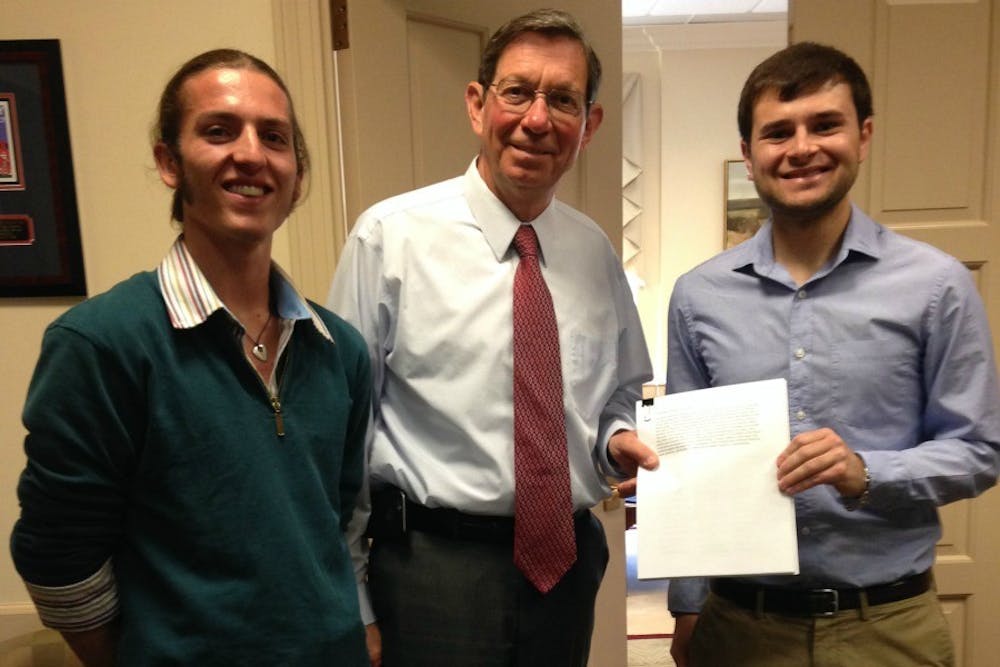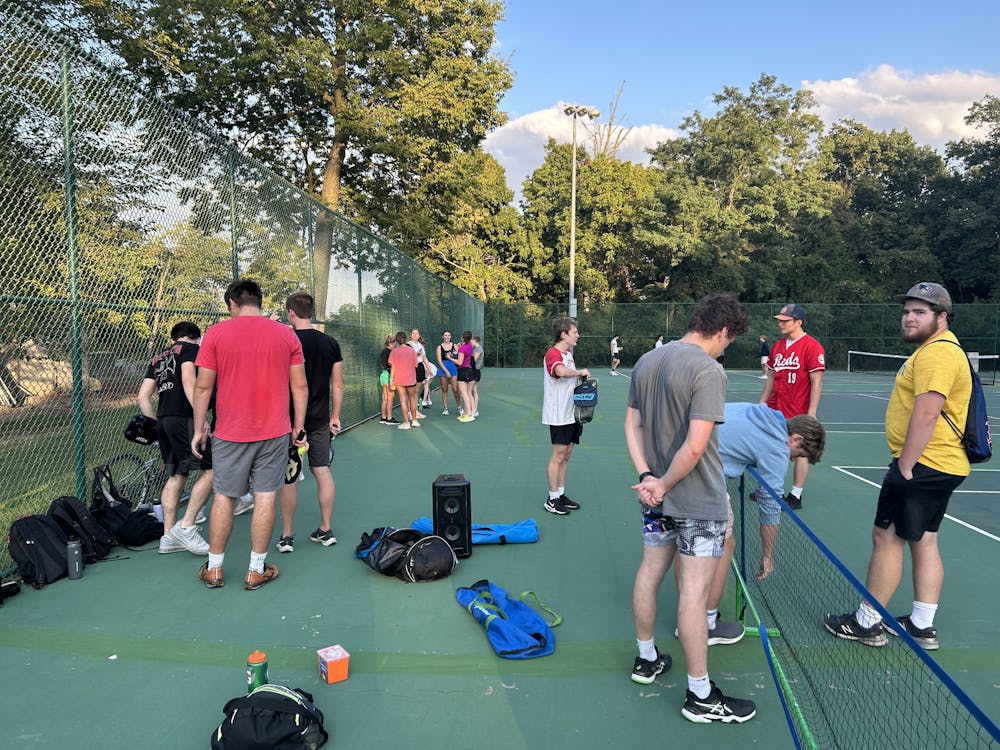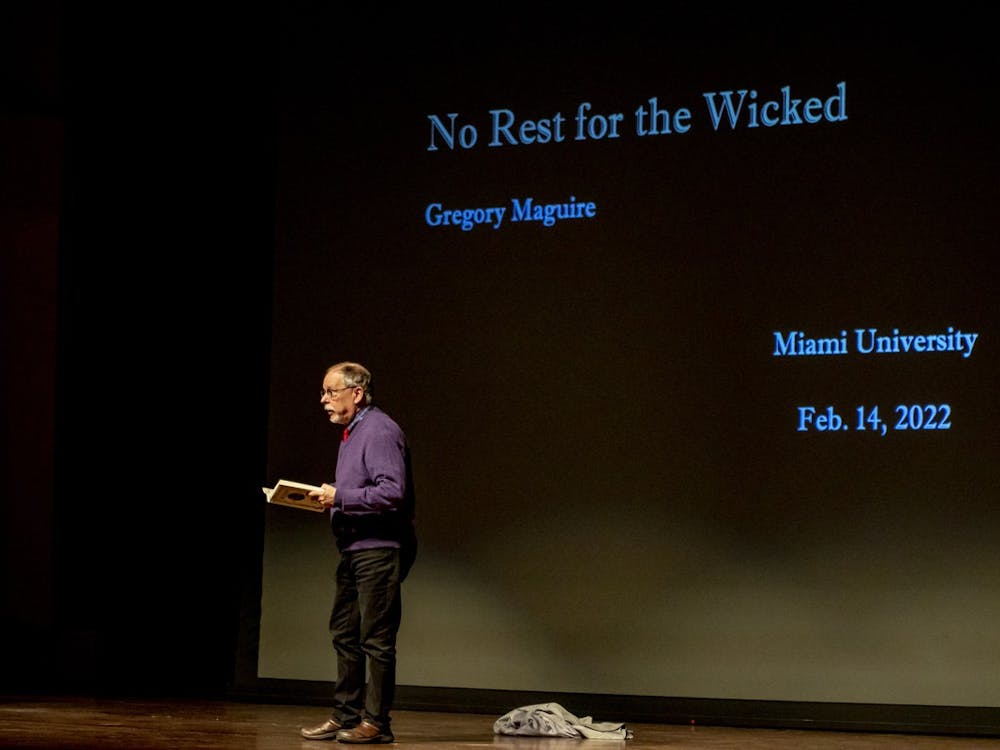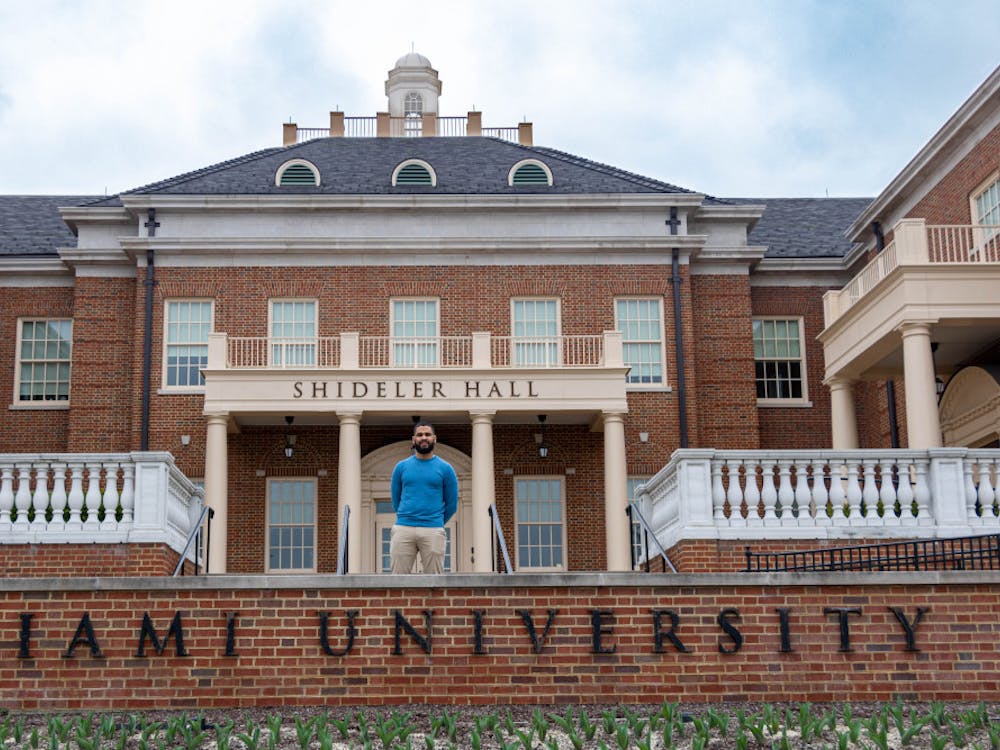From left to right: Taft Marsh, Pres. Hodge and Stephen Kiss
By Grace Moody, News Editor
Two Miami University students, senior Stephen Kiss and sophomore Taft Marsh, personally handed President David Hodge and Vice President for Finance and Business Services and Treasurer David Creamer a petition with 581 signatures in favor of compromising Bishop Woods Thursday morning.
The Bishop Woods Landscape Restoration plan will add a center lawn with seating, remove diseased trees and introduce more than 40 native plant species, according to the Physical Facility's plan.
The petition asks for no grass to be planted on the outside of the paths encompassing the proposed central lawn in Bishop Woods, the outer periphery or along the perimeter of the woodland area.
Also present at yesterday's meeting were biology professor Daniel K. Gladish and botany graduate student and instructor Garrett Dienno.
Kiss, an Integrated English Language Arts major, organized the petition weeks ago when he heard about the university's plan for Bishop Woods. He said he could not have done it without the collaboration of three others: Marsh, junior Jocelynne Samu and senior Samantha McCauley.
"Many individuals dedicated their time, hardwork and ideas pertaining to the Modification of Bishop Woods petition," Kiss said. "This helped the petition reach a wide audience and increase the number of people who signed [it]."
The students working on the petition had physical copies going around campus and local businesses. Digital copies on Google Docs were also sent around the Miami community.
The main proposal in the petition is a compromise with the Bishop Woods Restoration Project.
It was addressed not only to Hodge and Creamer, but also to Vincent Cirrito, the university landscape architect and Cody Powell, associate vice president of facility planning and operations. The Modification of Bishop Woods petition received a total of 581 signatures in seven days.
Kiss and Marsh said they were grateful for the opportunity to talk with administrators about it, emphasizing the importance of students' voices within the Miami community.
Enjoy what you're reading?
Signup for our newsletter
"I think we all deserve to have an equal say," Kiss said. "We can make a realistic compromise and have both parties be happy at the end."
Hodge agreed with this and was pleased that Kiss and Marsh were willing and confident to voice their concerns with the university.
"Everybody should have a voice," Hodge said. "We're a community; we do things together. We have a great respect for the perspectives that students bring."
Most prominently debated in this petition and among the administration is the topic of changing one of the only natural areas on campus. Kiss wants to preserve as much of this natural site as possible.
"I understand that things change and this is the way the world works," Kiss said. "But the beauty of nature is that it doesn't need to be touched. The natural Bishop Woods helps give Miami its unique charm. It has served as an oasis for me and many other people."
Hodge agreed there is a charm to Bishop Woods, as he discussed his enjoyment of walking through the area. He said the peacefulness makes it feel like it's a different area than the rest of campus.
"This is a very neat space to be able to walk through," Hodge said. "And to feel like you're in a new space is really cool."
Another concern of the proposal that Marsh discussed is the harm of planting grass in the area. He explained that because of grass's high uptake of nitrogen, reproducing gives stems the ability to shoot off other stems outward.
"At each node, it will form a new plant from the parent plant," he said.
Marsh also spoke to how the restoration of Bishop Woods would affect the students who study in it. Marsh is a botany major who has spent much time in Bishop Woods for class projects. He described Bishop Woods as, "an outdoor classroom" and said many biology, botany and geology students use the woods for learning purposes.
"This wooded area showed that Miami cares about nature preservation," Kiss said. "If compromise is made and officials do not plant grass in the wooded area besides the center of the woods, this natural area will be partly preserved."




